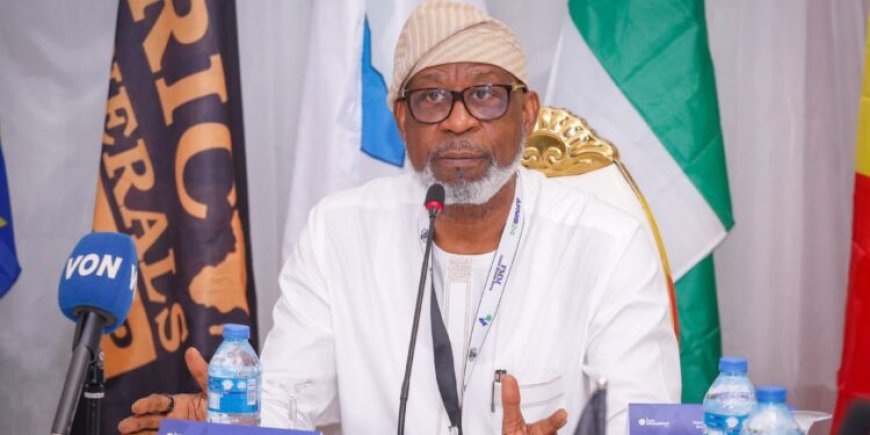Dele Alake: Mining marshals have transformed Nigeria’s extractive sector, boosted solid minerals revenue

Dele Alake, minister of solid minerals development, says the deployment of the Nigeria Security and Civil Defence Corps (NSCDC) mining marshals has transformed the nation’s extractive sector, reducing illegal mining and driving record revenue growth.
Alake spoke at the South-West Leaders Conference in Akure on Thursday.He said the mining marshals have reclaimed over 90 illegal mining sites and facilitated the prosecution of more than 300 offenders, restoring peace and order to previously volatile mining communities.The minister said the initiative is part of the broader reforms under President Bola Tinubu’s Renewed Hope Agenda, which seeks to make Nigeria a country where enterprise and lawful industry thrive.
“The mining marshals have given us results. We no longer just talk about illegal mining — we’re taking it back, site by site,” Alake said.
“Today, communities are safer, legitimate investors are returning, and government revenue is rising.”According to the minister, the impact of the marshals’ operations and other reform efforts is already reflected in the numbers, with sector revenue rising from N8.6 billion in 2022 to N38 billion in 2024, and N30 billion already recorded in 2025.Alake said the south-west region alone contributed N7.2 billion, underlining its importance as a hub for responsible mining and mineral development.
Highlighting the region’s potential, he cited the Segilola gold project in Osun state — Nigeria’s most successful gold venture — and hundreds of active quarry and exploration sites as proof of growing investor confidence in the sector.
The minister added that new reforms now compel mining companies to sign community development agreements (CDAs) before beginning operations to ensure host communities directly benefit from mining activities.
“In just two years, 45 south-west communities have signed CDAs — more than double what was achieved in the previous fifteen years,” he said.
Looking ahead, Alake said the next phase of the renewed hope reforms will focus on value addition, mineral processing, and stronger public-private partnerships to make mining a major driver of job creation and sustainable growth.
“We are proud of the progress made, but even more determined about what lies ahead,” he said.
On day one of the conference, Reuben Fasoranti, leader of the Afenifere, the pan-Yoruba socio-political group, urged political leaders from the south-west to prioritise performance and public impact over partisan competition.









